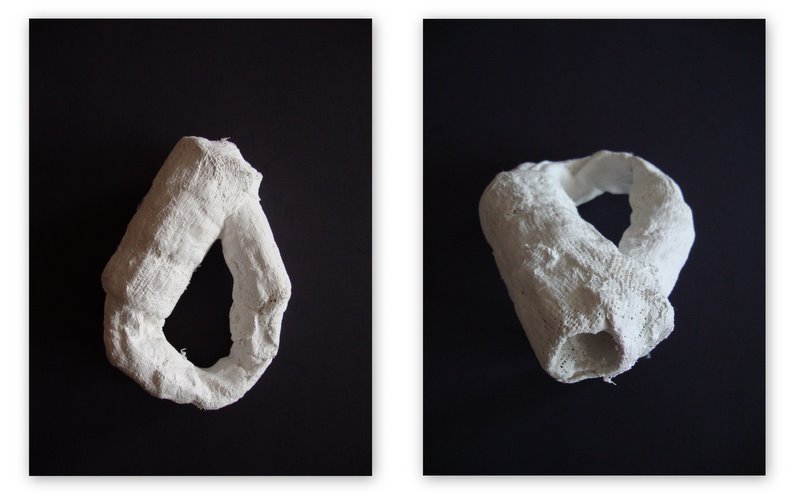Here are some examples of 3D surfaces sculpted out of floral foam by a Calculus student.
Creative and beautiful! More examples can be seen on my Facebook page.
Here are some examples of 3D surfaces sculpted out of floral foam by a Calculus student.
Creative and beautiful! More examples can be seen on my Facebook page.
There are many reasons I personally love to write, and as a math teacher, I love getting my students writing about math.
One easy way to do this is to have students write math-themed haiku. It’s a simple exercise, it gets students thinking about math in a different way, and the elegance and efficiency of the style is reminiscent of mathematics itself!
So enjoy some math-themed haiku from my Calculus students.
| Solving math problems
Getting lost along the way. You’re on the right track. |
Mathematicians
Must always seek out patterns To make connections. |
| Limit of a curve.
Tangent at infinity. Straight line asymptote. |
Triangles are shapes
They have sharp, pointy edges Don’t let them poke you. |
Got a good math haiku? Let’s hear it!
Related Posts
I was recently inspired to make my first sliceform.
With a handful of index cards, a marker, and some scissors, I was able to make this fun representation of a surface in 3D!
Turn it to the side, and see the surface from a different perspective.
The inspiration was timely, as my Calculus class has been discussing cross-sections, traces, and level curves of surfaces in space. What a perfect way to demonstrate how to understand a surface by looking at representative slices!
A great, simple tool, and you can see some examples of the sliceforms my students created, like the one seen below, here.
Here is some student work from a recent project I conducted on fitting curves to images in Geogebra. The details of the assignment can be found here, and more examples of student work can be seen on my Facebook page.
Students were asked to find pictures and use Geogebra to fit trigonometric curves to the images using transformations. Here are some of the results.
Smart Water = Smart Curves
My Good-Looking Windowsill
Sine of Camel Humps
Overall, I was really impressed with the creativity the students showed, and their facility with fitting these curves to the forms! A mathematical and artistic success in my book.
Related Posts
I enjoy offering impossible problems to students as extra credit, although I usually don’t tell them the problems are impossible. Such tasks usually engage them, confuse them, and make them suspicious of me. It’s a win-win-win.
While discussing some three-dimensional geometry, I offered extra credit to anyone who could build a model of a Klein bottle. The Klein bottle is a hard-to-imagine surface that has neither an inside nor an outside. It’s like a tube where one end meets the other and makes a seal, but somehow got turned inside out in the process. If you are familiar with the Mobius strip, the Klein bottle is basically a higher-dimensional Mobius strip.
One reason that the Klein bottle is hard to visualize is that it can’t be observed in three dimensions: it needs a fourth dimension in order to see it turn itself inside-out. This is analogous to the standard construction of the Mobius strip: we take a long strip of paper, give one end a half-twist, and tape the ends together. We think of the paper itself as being 2-dimensional, but we need that third dimension to twist through.
So, I was pretty impressed with the student who made this.

Not bad at all, for someone who is dimensionally challenged. Here’s a nice representation for comparison, although it’s still a cheat. The Klein bottle doesn’t really intersect itself.
A nice example of impossibly creative student work!